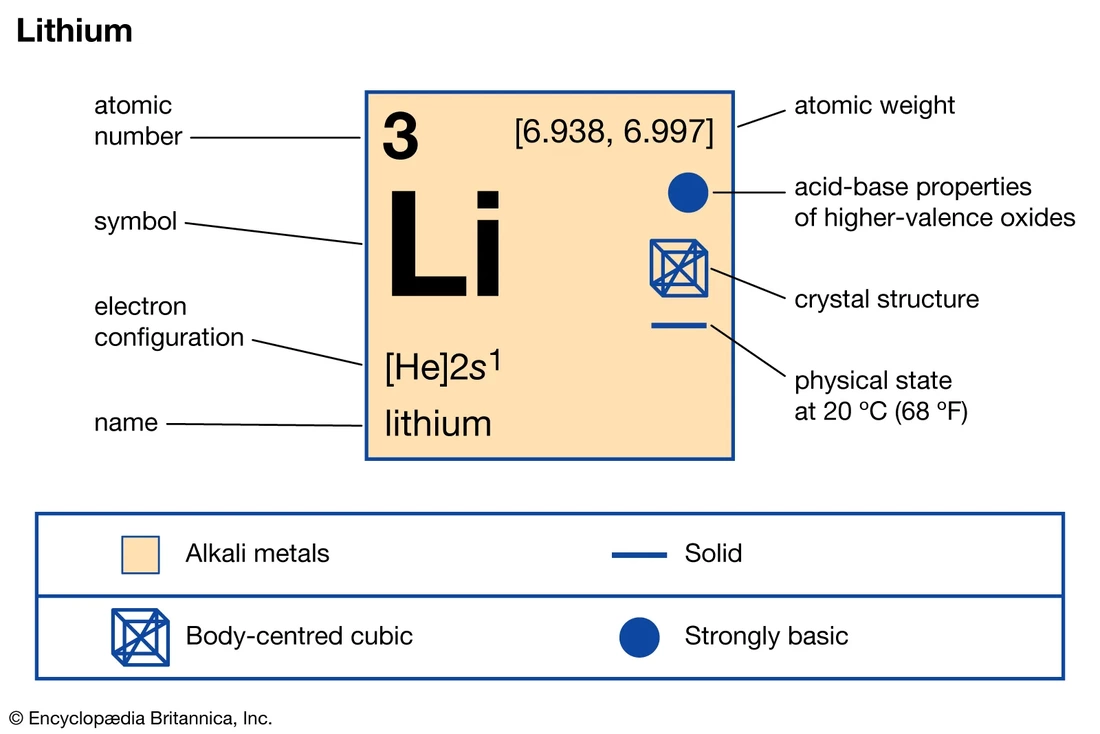KNOWLEDGE CENTRE
|
The term "scramble" can be used in various contexts. One common usage is in relation to eggs. When we talk about scrambling eggs, it means to beat them together in a bowl, mixing the yolks and whites until they are well combined. This creates a uniform mixture that can be cooked into a scramble. Another way the term "scramble" is used is in reference to a rapid and disorderly action. For example, in military operations, a scramble can refer to the quick mobilization of troops or aircraft in response to an emergency or threat. It involves a chaotic and urgent movement to get ready for action. In sports, the term "scramble" is often used to describe a situation where players are in a disorganized and frenzied state, trying to gain possession of the ball or achieve a goal. It can also refer to a play or strategy that involves improvisation and quick thinking in order to overcome a difficult situation. Additionally, the term "scramble" can be used in the context of puzzles or games. When we talk about a word scramble, it means rearranging the letters of a word to form new words or phrases. This can be a fun and challenging activity that tests our vocabulary and problem-solving skills. In summary, the term "scramble" can have different meanings depending on the context. It can refer to the mixing of eggs, rapid mobilization in military operations, chaotic situations in sports, or the rearrangement of letters in puzzles or games. The Scramble for Africa: European Colonization and its ImpactThe "Scramble for Africa" was a historical event that occurred during the late 19th and early 20th centuries, primarily between the 1880s and 1914. It was a period of intense competition and colonization by European powers who sought to establish control over African territories.
During this time, European countries, including Britain, France, Germany, Belgium, Italy, and Portugal, embarked on a race to claim as much of Africa as possible. The motivations behind the scramble were driven by economic interests, political rivalries, and the desire for strategic advantages. The European powers saw Africa as a source of valuable resources, including minerals, rubber, timber, and agricultural products. They also sought to expand their markets and secure trade routes for their goods. Additionally, there was a belief in the superiority of European civilization and a desire to spread Christianity and European culture. The scramble for Africa involved a series of diplomatic negotiations, treaties, and military actions. European powers would negotiate treaties with African leaders or impose them forcefully, often disregarding the sovereignty and rights of indigenous peoples. This led to the partitioning of Africa into various colonies and spheres of influence controlled by European powers. The consequences of the scramble for Africa were profound and far-reaching. African societies and cultures were disrupted and, in many cases, destroyed. Indigenous African rulers and political systems were marginalized or removed altogether. The exploitation of resources and labor by European colonial powers resulted in economic inequality and underdevelopment in many parts of Africa. The scramble for Africa also had long-lasting effects on the political boundaries of African countries. The arbitrary division of the continent by European powers created artificial borders that often ignored ethnic and cultural realities. These borders have been a source of conflict and instability in many African nations to this day.
0 Comments
Privacy Policy of Atika School
At Atika School, we are committed to protecting the privacy and personal information of our users. This Privacy Policy outlines how we collect, use, and safeguard the information you provide to us when using our website, atikaschool.org. Please read this Privacy Policy carefully to understand our practices regarding your personal information. Information We Collect When you visit our website, we may collect certain information about you. This information may include: Personal Information: We may collect personal information that you voluntarily provide to us, such as your name, email address, and contact information when you subscribe to our newsletter, fill out a contact form, or participate in any interactive features on our website. Non-Personal Information: We may also collect non-personal information, such as your IP address, browser type, operating system, and browsing behavior on our website. This information is collected through cookies and similar technologies and is used to improve our website's functionality and user experience. Use of Information We use the information we collect for various purposes, including: Providing and improving our services: We may use your personal information to respond to your inquiries, provide customer support, and enhance your user experience on our website. Communication: We may use your email address to send you updates, newsletters, and promotional materials about our products and services. You have the option to unsubscribe from these communications at any time. Analytics: We may use non-personal information for analytical purposes, such as analyzing user behavior and trends to improve our website's performance and content. Legal Compliance: We may disclose your information if required by law or in response to a valid legal request. Data Security We take the security of your personal information seriously. We implement appropriate security measures to protect your information from unauthorized access, misuse, alteration, or destruction. However, no method of transmission over the internet or electronic storage is completely secure, and we cannot guarantee the absolute security of your information. Third-Party Links Our website may contain links to third-party websites. These websites have their own privacy policies, and we are not responsible for their practices. We encourage you to review the privacy policies of these third-party websites before providing any personal information. Children's Privacy Protecting the privacy of children is important to us. Our website is not intended for use by individuals under the age of 13. We do not knowingly collect personal information from children. If you believe we have unintentionally collected personal information from a child, please contact us, and we will promptly remove the information from our records. Changes to the Privacy Policy We may update this Privacy Policy from time to time to reflect changes in our practices or legal requirements. We will notify you of any significant changes by posting the updated Privacy Policy on our website or sending you a notification. Your continued use of our website after any modifications to the Privacy Policy will signify your acceptance of the changes. Contact Us If you have any questions or concerns about our Privacy Policy, please contact us at email Nehemiah made several reforms regarding the Sabbath to preserve the identity of the Jews and ensure proper observance of this sacred day. Here are the reforms he implemented:
Overall, Nehemiah's reforms regarding the Sabbath were aimed at preserving the identity of the Jewish people, ensuring the sanctity of the temple, and promoting proper observance of the Sabbath as a day of rest and devotion to God. Exploring Prehistory: Understanding the Unrecorded PastPrehistory refers to the period of time before the invention of writing and drawing, during which human activities were not recorded or documented in written form. It is the unrecorded history, and our understanding of this period is reconstructed through various sources such as songs, myths, stories, artifacts, fossils, and the language of the people.
During prehistory, humans relied on oral traditions and other non-written methods of passing down knowledge and information. These methods allowed them to store and transmit important cultural practices, traditions, and values from one generation to another. Historical events, on the other hand, require recorded evidence to be considered historical facts. They must have evidence, whether written or unwritten, and they mainly concern human beings. Historical events primarily focus on past happenings and must contain elements of truth. The study of humankind's past can be organized into different categories. Social history, for example, deals with the traditions, values, and cultural practices of a particular group of people. Economic history, on the other hand, focuses on the means of livelihood such as hunting, gathering, agriculture, and other economic activities undertaken by a community. In conclusion, prehistory refers to the period of time before the invention of writing and drawing when human activities were not recorded in written form. It is through various sources and methods that we reconstruct our understanding of this period and gain insights into the lives and cultures of our ancestors. Understanding Ionization Energy: Key Concept in ChemistryIonization energy is the minimum amount of energy required to remove an electron from an atom of an element in its gaseous state. It is a fundamental concept in chemistry and is related to the electronic structure of atoms. The SI unit of ionization energy is kilojoules per mole (kJ/mol).
Ionization energy depends on the atomic radius of an atom. The higher the atomic radius, the less effective the nuclear attraction on the outer electrons, resulting in a lower ionization energy. This means that it is easier to remove an electron from an atom with a larger atomic radius. In the case of alkali metals, the ionization energy decreases down the group as the atomic radius increases. For example, the 1st ionization energy of sodium is 496 kJ/mol, while that of potassium is 419 kJ/mol. This is because as you go down the group from sodium to potassium, the atomic radius increases, and the effective nuclear attraction on the outer energy level electrons decreases. Therefore, it requires less energy to donate or lose outer electrons in potassium than in sodium. Understanding ionization energy is important in various areas of chemistry, such as understanding chemical reactions, predicting the reactivity of elements, and explaining the periodic trends in the periodic table. It helps us understand how atoms form ions and how they interact with other atoms to form compounds. Advantages of Operating a Current AccountA current account is a type of bank account that allows for frequent transactions and easy access to funds. There are several advantages to operating a current account:
From D+ to B+: How to Improve Your Grades and Achieve Academic SuccessTo recover from a D+ grade to a B+, it will require dedication, hard work, and a strategic approach. Here are some steps you can take:
Unraveling the Relationship Between Muscle Size and Strength: Beyond Bulk
DO BULKY MUSCLES EQUAL STRENGTH?
No, bulky muscles do not necessarily equal strength. While having larger muscles can contribute to overall strength, strength is determined by various factors, including muscle size, muscle fiber type, neuromuscular coordination, and training techniques. Muscle size, or muscle hypertrophy, can be a result of resistance training and progressive overload. When muscles are repeatedly subjected to resistance exercises, they adapt by increasing in size to handle the increased workload. However, the size of the muscle alone does not determine its strength. Strength is also influenced by muscle fiber type. There are two primary types of muscle fibers: slow-twitch (Type I) and fast-twitch (Type II). Slow-twitch fibers are more fatigue-resistant and better suited for endurance activities, while fast-twitch fibers are responsible for generating high levels of force but fatigue more quickly. The proportion of these fiber types in an individual can affect their overall strength potential.
Neuromuscular coordination plays a crucial role in strength. It involves the efficient recruitment and synchronization of muscle fibers by the nervous system. Improving neuromuscular coordination through proper training techniques, such as focusing on form, technique, and muscle activation, can enhance strength gains.
Furthermore, strength training methods, such as progressive overload and specific training protocols, can enhance strength without necessarily resulting in bulky muscles. These techniques involve gradually increasing the intensity, volume, or complexity of the exercises, stimulating strength gains without significant muscle hypertrophy. It is important to remember that strength is specific to the task or activity being performed. Different individuals may excel in different types of strength, such as maximal strength, explosive strength, or muscular endurance, depending on their genetic makeup and training focus. In conclusion, while having bulky muscles can contribute to overall strength, it is not the sole determinant. Strength is a complex attribute influenced by factors such as muscle size, fiber type, neuromuscular coordination, and training techniques. A well-rounded strength training program that encompasses various aspects of strength can lead to optimal performance, regardless of muscle size.
Unveiling the Forces of Chemical Weathering: Processes that Shape the Earth's LandscapeChemical weathering is the process by which rocks and minerals are broken down and altered through chemical reactions. There are several processes involved in chemical weathering, and three of the most common ones are:
In conclusion, the three processes of chemical weathering are hydration, oxidation, and carbonation. Each of these processes contributes to the gradual breakdown and alteration of rocks through chemical reactions, ultimately leading to the transformation of the Earth's landscape. The Remarkable Properties and Applications of LithiumLithium is a fascinating element with various key aspects and diverse applications. Let's explore its position on the periodic table, chemical composition, mining and purification processes, uses, similar metals, and availability. Position on the Periodic Table: Lithium is the third element in the periodic table and belongs to Group 1, along with other alkali metals such as sodium, potassium, and cesium. It has an atomic number of 3 and is represented by the symbol Li. Chemical Composition: Lithium is a lightweight metal and has an atomic mass of 6.94 amu. It has three protons, three electrons, and four neutrons in its nucleus, giving it a +1 oxidation state. It is the lightest metal and the least dense solid element. Mining and Purification Processes: Lithium is primarily obtained from the mining of lithium-rich minerals such as spodumene, petalite, and lepidolite. These minerals are usually found in pegmatite deposits. The mining process involves extracting the ore from the ground and then processing it to obtain lithium carbonate or lithium hydroxide, which are the most common forms used in various applications. The purification of lithium involves several steps, including crushing and grinding the ore, followed by flotation to separate lithium minerals from other minerals. The concentrate is then subjected to further processing, including roasting, leaching, and precipitation, to obtain high-purity lithium compounds. Uses:
Lithium has a wide range of applications due to its unique properties. One of the most significant uses of lithium is in rechargeable batteries, particularly lithium-ion batteries, which are used in various electronic devices such as smartphones, laptops, and electric vehicles. Lithium batteries are highly efficient, lightweight, and have a longer lifespan compared to other battery types. Lithium compounds are also used in the production of ceramics, glass, and aluminum. Lithium carbonate, for example, is used in the production of heat-resistant glass and ceramics. Lithium grease, a thick lubricating substance, is used in various industries to reduce friction and extend the lifespan of mechanical components. Similar Metals: On the periodic table, lithium is grouped with other alkali metals such as sodium, potassium, rubidium, and cesium. These metals share similar properties, including low melting points, high reactivity, and the ability to readily lose their outermost electron to form positive ions. Availability: Lithium is relatively abundant in the Earth's crust, but commercially viable deposits are limited. The largest lithium reserves are found in countries such as Australia, Chile, and Argentina. As the demand for lithium-ion batteries continues to rise, efforts are being made to explore new sources and improve the extraction and production processes to meet the growing demand. In conclusion, lithium is a valuable element with diverse applications. Its position on the periodic table, chemical composition, mining and purification processes, uses, similar metals, and availability all play a significant role in understanding and harnessing the potential of this element. As technology advances and the need for sustainable energy storage solutions increases, lithium will continue to be a crucial element in various industries. Unveiling the Roots of Greediness in Church Members: Nurturing Compassion and GenerosityHelp me find some positive words why greediness are rampant now in church members, what are the possible causes. Question asker profile
From: Minerva Guillepa [email protected] Phone: 09481626xxx Receive Time: 22-Sep-28 15:35:00 (GMT+03:00) Nairobi Page from Which The Message Was Sent: Identify eight problems experienced by church leaders in their work - ATIKA SCHOOL Visit Source: Search in Google Location: Philippines, Central Visayas, Cebu, Lapu-Lapu City (Map) Organization: Globe Telecom IP address: 1xx.54.1xx.x There are several possible causes for the rampant greediness among church members. However, it is important to note that not all church members exhibit this behavior, and there are positive aspects to consider as well. Here are some possible causes and positive words on the topic:
Possible Causes for Greediness among Church Members:
Proving Hydrogen's Presence in Water: The Electrolysis ExperimentTo demonstrate that hydrogen is a component of water, we can perform a simple test called the "electrolysis of water" experiment. Here's how you can conduct this test: Materials Needed:
Procedure:
Observations:
As the electric current passes through the water, you will notice some changes occurring at the electrodes:
Interpretation: The bubbles that form at each electrode are the key to understanding the components of water. The electrode connected to the positive terminal (anode) will produce oxygen gas (O2), while the electrode connected to the negative terminal (cathode) will produce hydrogen gas (H2). Conclusion: Through the process of electrolysis, the experiment demonstrates that water (H2O) can be separated into its constituent elements, hydrogen (H2) and oxygen (O2). The formation of hydrogen gas at the cathode confirms that hydrogen is indeed a component of water. It is important to exercise caution while conducting this experiment and ensure proper handling of electrical components. Adult supervision is recommended, especially if performing this experiment with children. Please note that this is just one of many tests that can be conducted to show that hydrogen is a component of water. Other methods, such as the combustion of hydrogen or the analysis of water using spectroscopy, can also provide evidence of the presence of hydrogen in water. Top 15 Fastest Growing Economies in 2024 - Projections by IMFTop 15 Fastest Growing Economies in 2024
According to projections from the International Monetary Fund (IMF), the following countries are expected to be the top 15 fastest-growing economies in 2024:
TOP FIVE LEADERS WHO ECONOMICALLY TRANSFORMED THEIR COUNTRIES AND WHAT THEY HAVE IN COMMON:
Key Areas to Focus:
what aspects do they have in common?These politicians all share some common aspects in their approach to economic reform:
Occasions for Reforms in Kenyan History: Addressing Challenges and Shaping DemocracyIn Kenyan history, there have been several occasions where reforms were necessary. These occasions can be identified from the documents as follows:
The Importance of Reforms: Shaping a Better FutureReasons why reforms are necessary can vary depending on the context, but here are some common reasons:
Preserving Heritage and Governance: Methods for Passing on History and Government in the TACIn the TAC (Traditional African Community), elders have employed various methods to pass on information about history and government to the younger generation. These methods include:
Understanding the Reasons Behind Not Having Money When NeededFinancial difficulties can arise due to various reasons, and not receiving money when needed can be a common issue. There are several factors that can contribute to this situation:
Understanding the Characteristics and Impact of Monopoly Market StructureIn a monopoly market structure, there are several key characteristics that set it apart from other market structures. Here are the main characteristics of a monopoly market structure:
The Interconnectedness of Religion and Culture: Exploring the RelationshipThe relationship between religion and culture is a complex and multifaceted one. Religion and culture are intertwined and often influence each other in various ways. Religion is an integral part of culture, shaping beliefs, values, and practices that are shared by a community or society. On the other hand, culture provides a framework within which religious beliefs and practices are expressed and interpreted.
Religion plays a significant role in shaping cultural norms, values, and traditions. It provides a moral compass and a set of guidelines for how individuals should live their lives. Religious beliefs often dictate social behaviors, such as the treatment of others, the role of women, and the importance of family. These beliefs and values are deeply ingrained in the cultural fabric of a society, influencing everything from daily rituals to major life events. Religion also influences art, music, literature, and architecture, which are all important aspects of culture. Religious stories, symbols, and rituals are often reflected in artistic expressions, creating a sense of identity and shared meaning within a culture. For example, religious paintings, sculptures, and music have been used throughout history to convey religious beliefs and inspire spiritual experiences. At the same time, culture also influences religion. Cultural practices and traditions shape the way religious beliefs are interpreted and expressed. Different cultures may have unique rituals, ceremonies, and celebrations that are specific to their religious traditions. For example, the way in which a religious festival is celebrated in one culture may differ significantly from how it is celebrated in another culture. Moreover, culture can also impact the way religious texts are interpreted. The cultural context in which religious texts were written and the cultural lens through which they are interpreted can shape the understanding and application of religious teachings. Different cultures may emphasize different aspects of a religion, leading to variations in religious beliefs and practices. In some cases, religion and culture may conflict with each other. Cultural practices that are deeply ingrained may clash with religious teachings, leading to tension and debate within a society. This can manifest in areas such as gender roles, marriage customs, or even food restrictions. In such cases, individuals may have to negotiate between their religious beliefs and cultural expectations. In conclusion, the relationship between religion and culture is a complex and dynamic one. Religion and culture are intertwined and influence each other in various ways. Religion shapes cultural values, traditions, and behaviors, while culture provides a framework for the expression and interpretation of religious beliefs. However, there can also be tensions and conflicts between religion and culture, as cultural practices may clash with religious teachings. Overall, religion and culture are deeply interconnected and play a significant role in shaping the identities and worldviews of individuals and communities. Snow and Ice: What Sets Them Apart Snow and ice are two forms of frozen water that we often encounter in colder climates. While they may seem similar at first glance, there are distinct differences between the two. Formation: Snow is formed when water vapor in the air freezes directly into ice crystals. These ice crystals then come together to form snowflakes. On the other hand, ice is formed when liquid water freezes and solidifies into a solid state. This can occur when temperatures drop below the freezing point. Physical Characteristics: Snow and ice also differ in their physical characteristics. Snowflakes are intricate and delicate in structure, with unique patterns and shapes. They are made up of loosely packed ice crystals, giving them a fluffy and lightweight appearance. Ice, on the other hand, is denser and more solid. It typically forms in layers or sheets and has a smooth and compacted texture. Temperature: Snow is associated with colder temperatures and is more likely to occur when the air temperature is near or below freezing. It requires sub-freezing conditions for the ice crystals to form and remain frozen. Ice, on the other hand, can form at or below freezing temperatures but can also exist at higher temperatures if it is kept in a controlled environment, such as a freezer. Composition: Snow and ice are both made up of water molecules, but the arrangement and density of these molecules differ. Snowflakes are made up of loosely packed ice crystals with air pockets in between. Ice, on the other hand, has a more compacted structure with fewer air spaces. This difference in composition affects their physical properties and behavior. Behavior and Uses: Snow and ice also behave differently in various situations. Snow is often associated with winter sports and activities, such as skiing and snowboarding. It can also provide insulation and act as a water source when it melts. Ice, on the other hand, is commonly used for refrigeration purposes, as well as for creating ice sculptures and maintaining low temperatures for preservation.
In conclusion, while snow and ice are both forms of frozen water, they differ in their formation, physical characteristics, temperature requirements, composition, behavior, and uses. Understanding these differences helps us appreciate the unique qualities and properties of snow and ice in various contexts. Remember, being cute is not something that can be forced or manufactured; it is an authentic expression of one's unique qualities and personality.In a world where attractiveness is often associated with conventional beauty standards, the concept of cuteness brings a refreshing perspective. When it comes to men, being cute goes beyond physical appearance and delves into the realm of personality traits, behaviors, and overall demeanor. To unravel the mystery of what qualifies a man as cute, we embark on a journey to explore the insights shared by the Quora community. Digging into the depths of Quora, we find a thread titled "What qualifies a man as cute?" where individuals share their thoughts and opinions on the subject. As we dive into the responses, a diverse range of perspectives emerges, shedding light on the multifaceted nature of cuteness. The first aspect that repeatedly surfaces in the discussion is a man's sense of humor. Wit, playfulness, and the ability to make others laugh are considered endearing qualities that can make a man irresistibly cute. Whether it's a clever joke, a witty comeback, or a goofy gesture, humor has the power to captivate and charm. Furthermore, genuine kindness and compassion are qualities that women find incredibly attractive in a man. Acts of kindness, empathy, and consideration create a sense of warmth and approachability, contributing to a man's cuteness factor. It's the small gestures of thoughtfulness, like holding the door open or lending a helping hand, that can melt hearts and leave a lasting impression. Confidence, without arrogance, is another characteristic that plays a pivotal role in making a man cute. The ability to be comfortable in one's own skin, coupled with a humble demeanor, creates an aura of authenticity and approachability. Confidence is not about boasting or being overly assertive; it's about being secure in one's abilities while remaining humble and respectful of others. A man who is passionate about his interests and pursuits often exudes an undeniable charm. Having a genuine enthusiasm for something, whether it's a hobby, a career, or a cause, showcases depth and dedication. This passion not only makes a man interesting but also adds an attractive layer of cuteness, as it reflects a sense of purpose and ambition. Intelligence is frequently mentioned as a characteristic that contributes to a man's cuteness. The ability to engage in meaningful conversations, share insightful perspectives, and showcase intellectual curiosity captivates the minds of those around him. A man who can stimulate intellectual stimulation while maintaining humility is deemed exceptionally cute. While these qualities form the core of what makes a man cute, it is important to note that cuteness is subjective and varies from person to person. Each individual has their own unique preferences and interpretations of what qualifies as cute. It is the combination of these qualities, along with individual chemistry and connection, that ultimately determines a man's cuteness in the eyes of others. As we conclude our exploration, it is essential to acknowledge that cuteness should not be confused with superficiality or triviality. Being cute is not about conforming to societal standards or trying to please others. It is about embracing one's true self, showcasing genuine qualities, and radiating an inner charm that captivates and attracts. In our quest to understand what qualifies a man as cute, we have delved into the intriguing insights shared by the Quora community. From a man's sense of humor to his kindness, confidence, passion, and intelligence, we have uncovered the multifaceted nature of cuteness. Remember, being cute is not something that can be forced or manufactured; it is an authentic expression of one's unique qualities and personality. Additional Information Cited From: Quora - What qualifies a man as cute? (https://www.quora.com/What-qualifies-a-man-as-cute) (https://www.quora.com/What-makes-girls-consider-a-boy-cute)
Summary of Findings:Summary of Findings:
The Democratic Republic of Congo (DRC) has long been plagued by conflict, with a complex web of factors contributing to its enduring instability. The latest conflict in the DRC is a mosaic of insurgent groups, each with its own motives, grievances, and alliances. This essay will delve into the intricate dynamics of the conflict, focusing on the involvement of European mercenaries, the role of Russia, and the various insurgent groups shaping the landscape of violence. At the heart of the conflict lies the question of European mercenaries and their impact on the situation in the DRC. The East African provides insights into this aspect, highlighting the alleged involvement of Russia and other Eastern European countries in aiding Kinshasa with mercenaries. The simmering conflict in eastern DRC has drawn attention to the presence of these mercenaries, raising concerns about their influence and the potential complications they pose to ongoing peace initiatives. The involvement of European mercenaries adds another layer of complexity to an already convoluted situation. The role of Russia in the DR Congo conflict cannot be overlooked. The East African report suggests that the Russian mercenary company, Wagner Group, may have established a presence in the country. If confirmed, this development could have significant implications for the conflict resolution efforts led by regional blocs such as the East African Community (EAC) and the International Conference on the Great Lakes Region (ICGLR). It also provides a counterpoint to accusations leveled against Rwanda by Kinshasa, who has accused them of supporting rebel groups. The presence of Russian mercenaries in the DRC shifts the narrative and potentially alters the balance of power in the region. Examining the various insurgent groups involved in the conflict is crucial to understanding its complexity. The Global Conflict Tracker by the Council on Foreign Relations (CFR) provides comprehensive information on the violence in the DRC, highlighting the presence of multiple armed groups. These groups operate across different regions of the country and are driven by diverse motivations, including political, ethnic, and economic factors. The conflict is further complicated by the competition for control over natural resources, such as minerals, which serve as a source of funding for these groups. The CFR's analysis underscores the fragmented nature of the conflict, with each group vying for power and resources. The Al Jazeera article titled "What is the latest conflict in the DR Congo about?" sheds light on the latest developments and underlying issues fueling the violence in the DRC. It explains how political tensions, ethnic rivalries, and the struggle for power have contributed to the conflict's escalation. The article emphasizes the role of armed groups, such as the Allied Democratic Forces (ADF) and the Mai-Mai militias, in perpetuating violence and destabilizing the region. It also highlights the dire humanitarian consequences, including displacement and the violation of human rights, endured by the Congolese population. As we explore the complexities of the conflict in the DRC, it is essential to critically evaluate the information presented. Misleading narratives and biased reporting can obscure the truth and hinder our understanding of the situation. Therefore, it is important to approach the available sources with a discerning eye, corroborating information where possible and questioning any potential biases or inaccuracies. In conclusion, the conflict in the Democratic Republic of Congo is a complex tapestry of insurgent groups, external actors, and underlying grievances. The involvement of European mercenaries, the role of Russia, and the dynamics of various armed groups contribute to the intricacy and volatility of the situation. Understanding the multifaceted nature of the conflict is crucial for developing effective strategies to promote peace, stability, and justice in the region. Additional Information Cited From:
What is CCTV?Introduction: Closed-circuit television (CCTV), also known as video surveillance, is a technology that utilizes video cameras to transmit signals to a specific location on a limited set of monitors. Unlike broadcast television, the CCTV signal is not openly transmitted but can employ various types of links, such as point-to-point, point-to-multipoint, or wired and wireless mesh networks. This essay will delve into the world of CCTV, exploring its history, technology, uses, prevalence, technological developments, countermeasures, and its impact on society. History: The roots of CCTV can be traced back to June 1927 when Russian physicist Léon Theremin developed an early mechanical CCTV system. Consisting of a manually-operated scanning-transmitting camera and wireless shortwave transmitter and receiver, this system was initially used to monitor the Moscow Kremlin's courtyard for approaching visitors. Another early instance of CCTV was observed in 1942 when Siemens AG installed a system to observe the launch of V-2 rockets in Nazi Germany. The first commercial closed-circuit television system in the United States, known as Vericon, became available in 1949. However, little is known about Vericon except that it did not require a government permit. Over time, advancements in technology led to the development of reel-to-reel media, enabling the recording and storage of surveillance footage. The introduction of VCR technology in the 1970s further facilitated the recording and erasing of information, leading to the increased use of CCTV. Technology: CCTV technology has evolved significantly over the years. Early systems involved constant monitoring as there was no way to record and store information. However, the development of reel-to-reel media allowed for the recording of surveillance footage. VCR technology made it easier to record and erase information, leading to the widespread use of CCTV. During the 1990s, digital multiplexing emerged, enabling multiple cameras to record simultaneously, along with time-lapse and motion-only recording capabilities. This advancement saved time and money, resulting in the increased adoption of CCTV. In recent years, CCTV technology has further progressed with the shift towards internet-based products and systems, as well as other technological developments. Uses: CCTV finds its applications in various sectors and industries. In terms of crime prevention, CCTV has been widely used to deter criminal activities and aid in their investigation. It has also been utilized in traffic flow monitoring, both for vehicle traffic and pedestrian traffic. The use of CCTV in managing infection and ensuring safety and security in public transport has been instrumental. Sporting events, employee monitoring, schools, private homes, shopping malls, retail stores, and even counter-terrorism efforts have benefited from the use of CCTV. Prevalence: The prevalence of CCTV is widespread across the globe. In Asia alone, approximately 65% of the estimated 1 billion surveillance cameras in use worldwide are installed. The growth of CCTV has been significant, but recent years have shown a slowdown in its deployment. Nevertheless, the technology has facilitated substantial growth in state surveillance, advanced social monitoring and control methods, and various crime prevention measures globally. Privacy Concerns: The use of CCTV has sparked significant debate regarding the balance between surveillance and individuals' right to privacy, even in public spaces. While the technology has undoubtedly contributed to crime prevention and investigation, it has raised concerns about the potential infringement on personal privacy. Striking a balance between security and privacy remains a challenge, requiring careful regulation and oversight. Technological Developments: CCTV technology continues to evolve, with advancements such as computer-controlled analytics and identification, retention, storage, and preservation of surveillance footage, IP cameras, networking CCTV cameras, wireless security cameras, and even talking CCTV systems. These developments have enhanced the capabilities and effectiveness of CCTV systems, providing improved security measures and efficient monitoring. Countermeasures: As with any technology, CCTV systems are not without vulnerabilities. Various countermeasures have been developed to address potential weaknesses and protect against unauthorized access, tampering, or sabotage. These countermeasures include encryption, authentication protocols, intrusion detection systems, and physical security measures. Impact on Society: The widespread use of CCTV has had a profound impact on society. While it has undoubtedly contributed to crime prevention and improved public safety, there are concerns regarding the potential for abuse, invasion of privacy, and the creation of a surveillance state. Critical examination of the ethical, legal, and social implications of CCTV is essential to ensure responsible and transparent use of this technology. Conclusion:
Closed-circuit television (CCTV) has revolutionized surveillance and security measures across various sectors. From its humble beginnings to the technological advancements of today, CCTV What sacrifices has Singapore made in pursuit of its economic development over the last 40 years?10/12/2023 Singapore's Economic Development: A Journey of SacrificesSingapore, a small island nation located in Southeast Asia, has undergone a remarkable transformation over the last four decades. From a struggling developing country to a prosperous global financial hub, Singapore's economic development has been a result of numerous sacrifices made by its government and people. In this essay, we will delve into the sacrifices Singapore has made and the impact they have had on its economic growth. One of the key sacrifices made by Singapore was its focus on education and human capital development. Recognizing the importance of a skilled workforce in driving economic growth, the Singaporean government invested heavily in education, ensuring that its citizens had access to quality education and training opportunities. This commitment to education required significant financial resources and the dedication of both time and effort from students and teachers alike. Singaporeans had to sacrifice leisure and personal time to focus on their studies, often engaging in long hours of rigorous studying and extracurricular activities. This sacrifice paid off as Singapore now boasts one of the best-educated populations in the world, which has been instrumental in attracting foreign investments and fostering innovation. In addition to education, Singapore has made sacrifices in terms of land use and urban planning. With limited land resources, the government had to make tough decisions regarding land allocation. This meant prioritizing economic development over preserving natural landscapes. As a result, Singapore has seen the transformation of its once abundant green spaces into a concrete jungle. While this sacrifice may seem controversial, it has allowed Singapore to maximize its land utilization, creating a highly efficient and compact city-state. The focus on urban planning has resulted in the development of world-class infrastructure, including modern transportation systems, efficient public housing, and state-of-the-art business districts. These sacrifices have contributed to Singapore's reputation as a global economic powerhouse. Another sacrifice Singapore has made is the restriction of civil liberties and political freedoms in the pursuit of economic stability. The Singaporean government has adopted a strict approach to governance, placing emphasis on law and order, and limiting political dissent. While this has been criticized by some as curbing individual freedoms, it has also provided a stable environment for businesses to thrive. The government's strong stance against corruption and its efficient bureaucracy have attracted multinational corporations and investors, who value Singapore's reputation for transparency and accountability. However, it is important to acknowledge the ongoing debate regarding the balance between economic stability and individual freedoms in Singapore. Furthermore, Singapore has made significant sacrifices in terms of its social welfare system. The government has implemented policies that prioritize economic growth over extensive welfare benefits. This has resulted in a relatively lean social safety net compared to some other developed countries. While Singaporeans enjoy a high standard of living, there is a greater emphasis on personal responsibility and self-reliance. The government promotes a culture of individual savings and encourages citizens to plan for their own retirement and healthcare needs. While this approach has contributed to Singapore's economic success, it also places a greater burden on individuals to financially prepare for the future. In conclusion, Singapore's journey towards economic development over the last 40 years has been characterized by a series of sacrifices. These sacrifices include a strong focus on education, the transformation of land use, the restriction of civil liberties, and a lean social welfare system. While some may question the extent of these sacrifices and their impact on individual freedoms and social equality, it cannot be denied that they have played a significant role in Singapore's economic success. Singapore's story serves as a reminder that economic development often requires difficult choices and trade-offs. As Singapore continues to evolve, it will be crucial to strike a balance between economic growth and the well-being of its people. Additional Information Cited From: Quora (https://www.quora.com/What-sacrifices-has-Singapore-made-in-pursuit-of-its-economic-development-over-the-last-40-years?q=WHAT%20MADE%20SINGAPORE)
|
Archives
July 2024
Categories
All
|
We Would Love to Have You Visit Soon! |
Hours24 HR Service
|
Telephone0728 450425
|
|
8-4-4 materialsLevels
Subjects
|
cbc materialsE.C.D.E
Lower Primary
Upper Primary
Lower Secondary
Upper Secondary
|
teacher support
Other Blogs
|

























 RSS Feed
RSS Feed